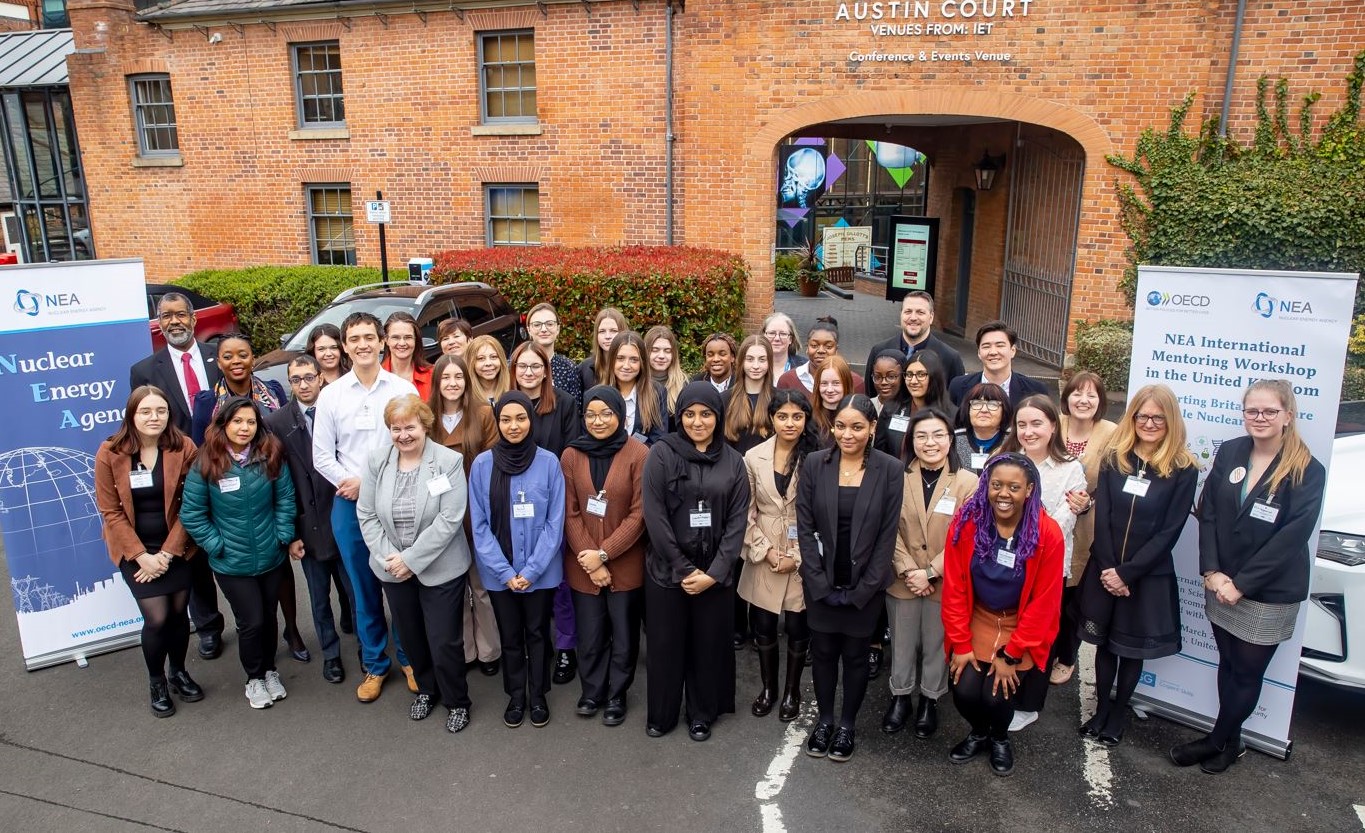Marie Skłodowska-Curie’s granddaughter and distinguished nuclear physicist, Hélène Langevin-Joliot, will be among those aiming to inspire young women to pursue studies and careers in science, technology, engineering and maths (STEM) at a mentoring workshop to mark International Women’s Day (March 8).
A group of around 30 sixth-formers from six schools and colleges in Birmingham and Derby are attending the mentoring event co-organised by the Nuclear Energy Agency (NEA), Nuclear Skills Strategy Group (NSSG) and the Department for Energy Security and Net Zero (DESNZ) at the IET Birmingham Austin Court.
Students will hear from mentors and industry leaders, who will encourage them in their future academic and career aspirations – including through a video message from Hélène Langevin-Joliot, a nuclear physicist and the granddaughter of Marie and Pierre Curie, and Director-General of the OECD NEA William D. Magwood IV.
Director-General Magwood said: “When it comes to human capacity, one issue on which we all have to come together is to make sure that women in all countries have an equal opportunity to rise to leadership positions within the nuclear energy sector.”
The nuclear sector faces a significant skills challenge in the coming decades if it is to help meet the increasing demand for low-carbon energy, as the UK seeks to reach net zero by 2030. The UK government recently published its British Energy Security Strategy, which outlined plans to significantly increase electricity generation through nuclear – up to 24GW by 2050.
Also taking part in the event will be Fiona Rayment, Chief Science and Technical Officer of National Nuclear Laboratories, and Kiera Harper, Deputy Director, from DESNZ.
Keira Harper said: “A way to solve the skills challenge is by creating a more diverse, inclusive and skilled workforce in the nuclear sector. The UK government will continue to work with the industry to achieve these important objectives and is committed to promoting opportunities for women and underrepresented groups in the sector.”
Attendees will also work with four international mentors from France, Germany, Romania and the USA, mentors from key players in the UK nuclear sector (Frazer-Nash, National Nuclear Laboratory and the Environment Agency) and speakers from PA Consulting and NSSG.
The UK government is investing in skills and workforce development programs to ensure the next generation of nuclear professionals has the skills and capabilities to succeed in this field. This includes supporting apprenticeships and vocational training, as well as funding research and development into new technologies and innovative solutions.
The University of Birmingham offers students nuclear degree programmes and is in the heart of a city with a rich industrial heritage – but there is also a perceived lack of knowledge among school leavers and graduates in the region about jobs and opportunities in nuclear energy. Attracting more women into STEM fields is a focus area for the NEA.
The first publicly available international data on gender balance in tahe nuclear sector has also been published by the NEA today: www.oecd-nea.org/improving-gender-balance-nuclear.
The event is also supported by Women in Nuclear (WiN), Young Generation Network (Nuclear Institute) and Rolls Royce SMR.

